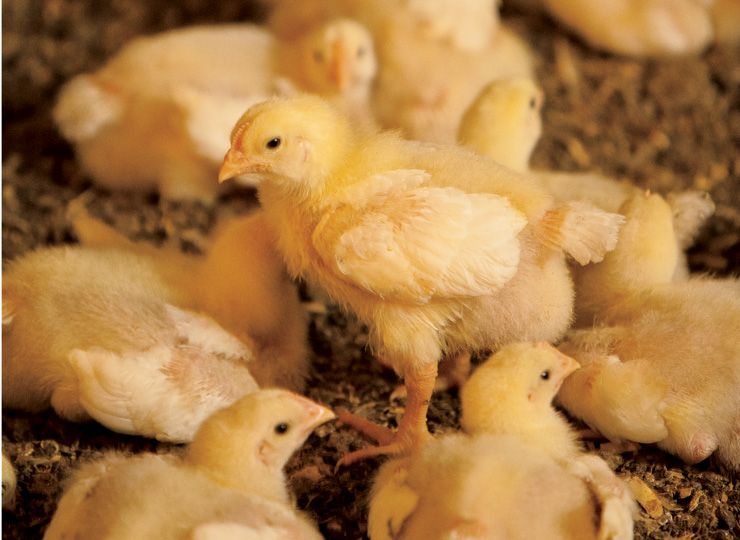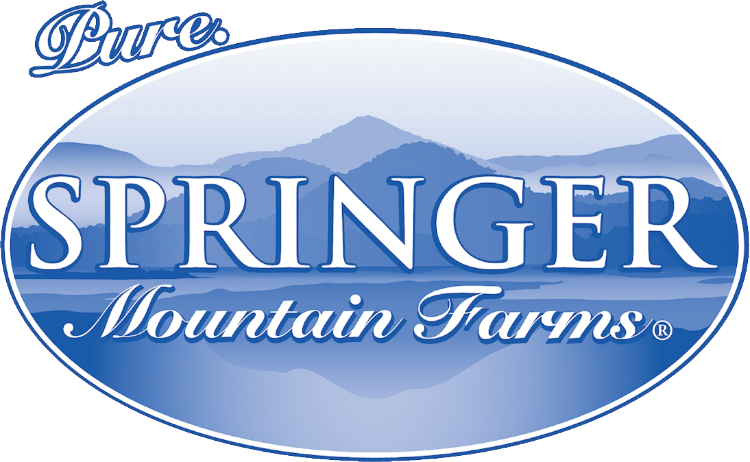Home > Georgia > Georgia Crops & Livestock > Georgia Poultry Processing is An Industry With Wings
Georgia Poultry Processing is An Industry With Wings
To get a glimpse of the economic impact from the poultry processing industry in Georgia, take a look at Springer Mountain Farms.
Founded in 1972 in the northeastern part of the state, the family-owned company has 4,200 employees. Of those, about 3,000 work in two processing plants located in Gainesville and Cornelia.
Its importance to the local economies can’t be overstated.
“We are the largest employer in Habersham County and the largest in Hall County,” says John Wright, Springer Mountain’s vice president of operations. “We are also the largest water customer in Gainesville and largest in Cornelia. The economic impact of both of our facilities is not only felt at home but in the municipalities as well.”
True Impact
Similar significance can be seen throughout Georgia, the nation’s leading poultry-producing state. With nearly 4,000 poultry farms in Georgia – including processing plants, feed mills, hatcheries and delivery systems – the industry generates about $28 billion per year, according to a University of Georgia study. Approximately 111,000 Georgians are directly or indirectly employed by the poultry industry, most of them in the processing sector.
“The processing part of the industry is vital to the Georgia economy,” says Mike Giles, president of the Georgia Poultry Federation. “And it is really the basis for all the farm opportunities that exist for poultry growers throughout the state.”
Other notable poultry-processing companies in Georgia include Victory Foods in Gainesville, Pilgrim’s Pride and Claxton Poultry. Pilgrim’s Pride, headquartered in Greeley, Colo., has six processing facilities in Georgia. Claxton Poultry, which lists Chick-fil-A and other national chains among its 750 customers, has a workforce of around 1,800 at its processing plant in Claxton, a feed mill and two hatcheries in Glennville, and a distribution center in Savannah.
Adopting Innovations
Springer Mountain is at the forefront in terms of safe handling and humane treatment of chickens at its facilities. In fact, the company became the first poultry producer in the world to gain the endorsement of the American Humane Association under its American Humane Certified program.
“We believe a more educated consumer learns about the products they eat,” Wright says. “It’s important that we recognize that raising chickens in a humane manner is not only the right thing to do, but it’s the best-quality product.”
As a whole, processors are operating much more efficiently than they did 20 years ago, according to Giles.
“From the farm through the processing plant, this is an industry that has adopted innovations as they come and has become more efficient, and also one that because of challenging financial times has really paid attention to driving down costs where feasible so that profit margins will be maximized,” he says.
Exports have also played a bigger role in the industry in the last decade or two, which Giles says is particularly true for processors in Georgia.
“About 20 percent of all poultry produced in the U.S. is exported, and in Georgia that number is slightly higher because of our proximity to the ports on the Gulf and Atlantic coasts,” he says. “So exports are really important to poultry producers in Georgia, and that’s a trend that has really been noticed over the past 20 years.”





